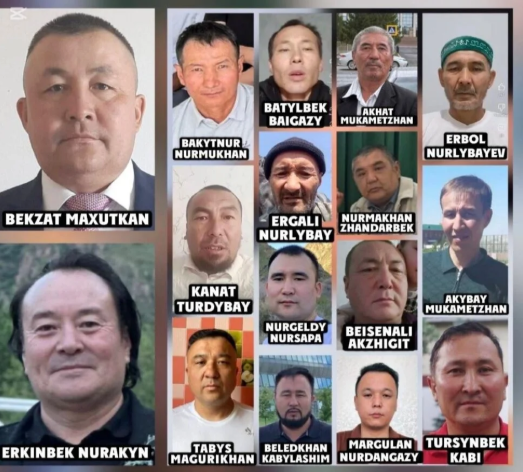Digital Repression Targets Tibetans in Tibet and Abroad
- info775148
- 24. 4.
- Minut čtení: 3
An independent report denounces the company Meiya Pico for its role in supplying cutting-edge police technology. International sanctions should target it.
April 23, 2025
Turquoise Roof, a research network of scholars and analysts of Tibet, has released a new report, “A Long Shadow: The Expansion and Export of China’s Digital Repression Model in Tibet.” It is an important document showing how cutting-edge digital technology is used to further repress any possible dissent in Tibet.
Procurement documents show that Meiya Pico, a Chinese state-owned digital forensics firm, will set up a cyber operations training facility and forensic lab for Tibet Police College in Lhasa.
This move highlights the Chinese government’s strategic investment in enhancing the Public Security Bureau (PSB) training infrastructure in Tibet and emphasizes Meiya Pico’s crucial role in meeting these specialized needs.
Implementing Meiya Pico’s offensive cyber training capabilities and digital forensics technology in this historically significant and culturally sensitive area showcases integrating such technologies into China’s public security framework in Tibet. Lhasa remains a key pilgrimage site despite the Dalai Lama’s absence since his 1959 escape and has become a testing ground for surveillance technologies.
Over the last decade, the report says, Meiya Pico has become a cornerstone of China’s digital surveillance infrastructure. From developing covert phone spyware and forensic hacking tools for law enforcement to creating big-data platforms that analyze email communications, Meiya Pico’s technology has been instrumental in repression efforts in Xinjiang and Tibet. The company was flagged as a significant risk to U.S. national security in 2019. It was listed alongside firms like iFlytek and SenseTime on the National Security’s Entity List due to its role in human rights violations against Uyghurs in Xinjiang. This is a serious concern as Meiya Pico supplies products and services and cooperates in teaching law enforcement agencies, “as instructed by the Ministry of Public Security of China,” in several foreign countries, including the United Kingdom, Turkey, Argentina, and South Africa.

The company’s gradual transition into a state-owned enterprise and deep collaboration with security agencies like the Ministry of Public Security illustrate how ostensibly independent cybersecurity firms in China, which also operate abroad, can transform into tools of centralized authoritarian control. Investigations and leaks, including the revelation of Meiya’s MFSocket app that harvests data from phones in 2019 and last year’s i-Soon files, have exposed this opaque partnership, highlighting a network of surveillance and spyware contractors supporting the CCP’s domestic rule and influencing other nations.
Meiya Pico exemplifies this network by serving a dual function: facilitating police surveillance within China’s frontier regions and exporting its model of digital repression internationally. Whether supplying PRC police in Lhasa with remote intrusion methods or training foreign law enforcement, Meiya Pico embodies the global ambitions of China’s surveillance and security sectors.
The digital forensics technology, training, and services offered by Meiya Pico can contribute to both ends of a repression pipeline, extending the scope of transnational repression beyond the Belt and Road corridor. This aids Beijing in monitoring, intimidating, and silencing Tibetan dissent worldwide. When Chinese police in Tibet seize a phone from someone suspected of communicating with Dharamsala, they will likely employ Meiya Pico’s tools to extract and analyze the phone’s data, especially following the reported withdrawal of Israel’s Cellebrite from the PRC market. Furthermore, the training provided to police in Lhasa at the new offensive security lab may target exile networks.
The report explores the extensive securitization of digital networks and their effects on Tibetans’ psychological well-being and social cohesion. It draws comparisons with similar strategies employed against other minority and diaspora communities.
The digital transnational repression imposed by the PRC on Tibetans presents a multifaceted challenge at the intersection of technology, psychology, and geopolitics. Its impacts, which range from anxiety disorders to weakened community ties, are grave but can be alleviated through robust cybersecurity measures, psychosocial support, and international condemnation and actions.
The report urges democratic countries to take action against the Meiya Pico company and protest the digital repression of Tibetans in Tibet and abroad.
Source: bitterwinter.org











Komentáře